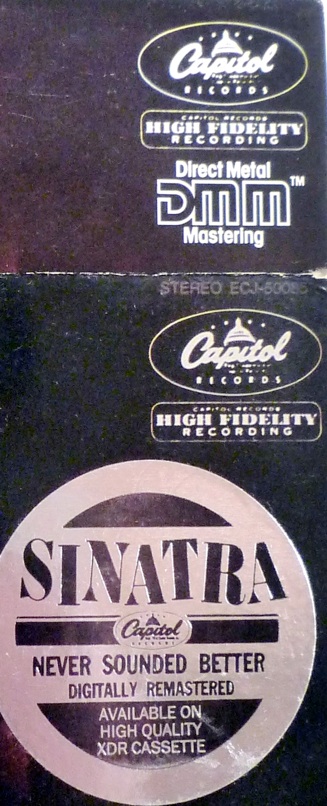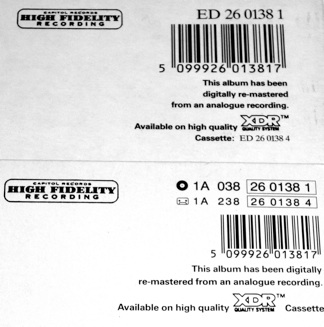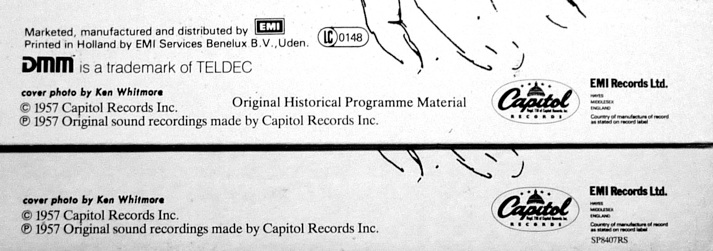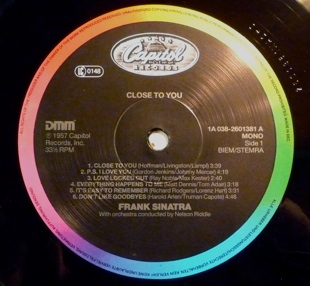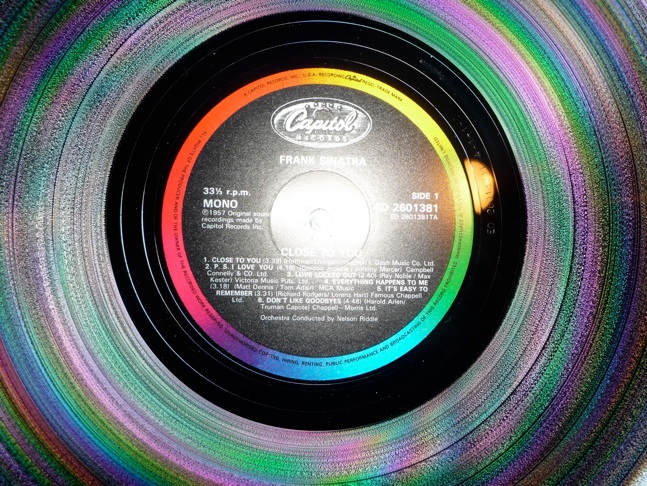A Very Fine Winner, Albeit with the Help of a Technicality
The label shown above is from the 1984 Dutch (not UK) release in the “Dell” reissue series of 1984.
The original version of this “winners page” read: <<To my ears, there are many good sounding LP pressings of this album, but the one that has the best balance of full-range fidelity, good instrumental tone, warm vocal tone, and a key element of intimacy in the sound, the winner, hands down, is the 1982 Mobile Fidelity release.>> The second version read: <<Although I still love the sound of that MFSL pressing, I cannot say that it is, overall, superior to the British “Alan Dell” LP from 1984. The MFSL definitely has a little more upper-treble, which at times brings out details that other versions are lacking, but it also is at times just a little (and I mean a little) on the “forward” side of how things should (to my ears) sound on this title. The UK pressing, meanwhile, has a more relaxed high end, by comparison, which makes it come across, to my ears, as the a little more “laid back,” for lack of a better way to put it. The MFSL sounds wonderfully modern, and is still probably my personal favorite; the UK pressing sounds subdued and “classic” in tone.>>
All of that remains true five years on. However, we’ve had a couple of excellent 1980s releases come to light since then, and they are deserving of attention: 1.) The oddball 1983 French (Pathe-Marconi) LP release that says “Duophonic” on the cover, but is actually presented in excellent, true mono; and 2.) The hard-to-find DMM “Dell” LP variant that was released exclusively in the Netherlands alongside its non-DMM, more common UK counterpart. Frankly, I can’t imagine putting any of these two options, or the MFSL, or the UK Dell on my turntable and not being 100% pleased, but again, in direct A/B comparisons, there are differences. That’s not to say that other versions, including original Capitol D and N copies are not very good. Many of them are!
To my ears and to my personal tastes, the MFSL remains the best sounding release, but I know that I am in the minority in that view, and I also know (as evidenced on the previous page) that the MFSL LP is a technically-flawed release, so I’ve got no qualms about pushing it to the curb just a bit, and going with the Dutch-pressed DMM “Dell” LP as a top choice.
Here are some transitional comparisons:

